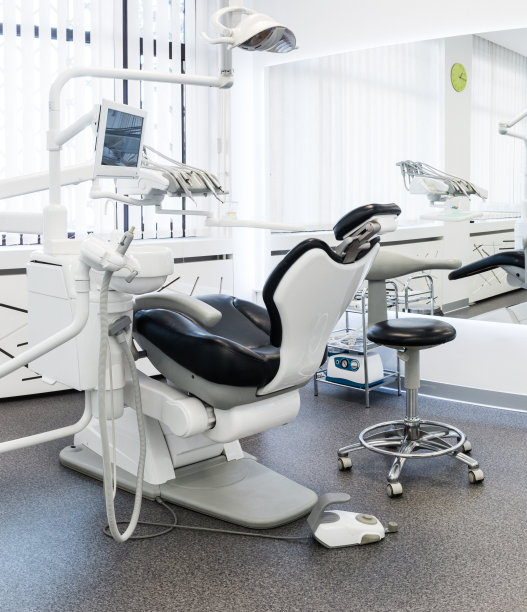Summary: Preparing for a dental filling appointment requires careful consideration of various factors to ensure optimal oral health. This article highlights essential tips and precautions, including understanding the procedure, discussing medical history with your dentist, managing anxiety, and planning post-treatment care. By taking these steps, patients can contribute to a smoother experience and maintain better oral hygiene in the long run. With proper preparation, you can make your dental filling appointment less daunting and ensure a more positive outcome for your dental health.
1. Understanding the Filling Procedure

Before your dental filling appointment, its crucial to understand what the procedure entails. Dental fillings are used to restore the function and integrity of decayed or damaged teeth. Knowing the materials used, such as amalgam, composite resin, or gold, can help you feel more comfortable during the process. Each material has unique properties, and understanding these can guide you in discussing your preferences with your dentist.
Moreover, familiarize yourself with the step-by-step procedure of getting a dental filling. Generally, the dentist will begin by numbing the area around the tooth, followed by removing the decayed material. After cleaning the cavity, the filling material is placed and shaped to restore the tooths function. Being informed about these steps can significantly reduce anxiety and make the experience less intimidating.
Additionally, ask your dentist any questions you may have beforehand. Feel free to inquire about the duration of the procedure, potential discomfort, and aftercare. The more information you have, the more prepared you’ll be, which can lead to a more positive mindset during your appointment.
2. Discussing Medical History with Your Dentist
Your medical history plays a vital role in your dental treatment. Prior to your appointment, ensure that you share any relevant health concerns or conditions with your dentist. This includes allergies, medications you are taking, and any previous dental anxiety or complications. Such information helps the dentist tailor their approach and select the most appropriate filling material for your case.
Moreover, if youre pregnant, diabetic, or have heart conditions, it’s essential to discuss these with your dentist. Certain conditions may require specialized treatment or precautions during the filling process. Transparency with your dentist can lead to better care and a more personalized experience.
Lastly, don’t hesitate to express any concerns about the procedure or discuss your preferences regarding anesthesia. Your comfort and safety should be a priority, and your dentist needs to understand your needs to deliver optimal care.
3. Managing Pre-Appointment Anxiety
Dental anxiety is a common issue that can hinder individuals from seeking necessary treatment. To manage pre-appointment anxiety, practice relaxation techniques such as deep breathing exercises or visualizations of a calming environment. These methods can help ease your mind and create a more relaxed atmosphere before your appointment.
Additionally, consider visiting the dental office before your appointment. Becoming familiar with the environment can make the procedure feel less daunting. Some people find it helpful to bring a friend or family member for support, or to use distraction techniques like listening to music or podcasts during the procedure.
Another option is to discuss sedation dentistry with your dentist. If your anxiety is severe, sedation can help you feel more comfortable and relaxed throughout the process. Make sure to ask about any risks or side effects associated with sedation options based on your medical history.
4. Planning for Post-Treatment Care
Once you’ve undergone the dental filling procedure, planning for post-treatment care is vital for optimal recovery. Start by following your dentists specific aftercare instructions regarding diet and oral hygiene. Generally, it is advisable to avoid hot or hard foods immediately following the filling, as anesthesia may still be affecting your sensation in the mouth.
Remember to maintain good oral hygiene practices, such as brushing and flossing regularly, to ensure the longevity of your filling. Regular dental check-ups are also crucial to monitor the condition of the filling and surrounding teeth. Keeping your dentist informed about any changes will facilitate timely attention to potential issues.
Furthermore, pay attention to any unusual symptoms post-treatment, such as prolonged sensitivity or discomfort. If these symptoms persist, do not hesitate to schedule a follow-up appointment to address your concerns. Prompt communication can help prevent complications and ensure the health of your teeth.
Summary:
In conclusion, preparing for a dental filling appointment involves understanding the procedure, discussing your medical history with the dentist, managing anxiety, and planning for post-treatment care. Each of these aspects plays a crucial role in fostering a positive dental experience and maintaining optimal oral health. Being prepared not only alleviates fear but also contributes to a successful filling process and long-term dental wellness.
This article is compiled by Vickong Dental and the content is for reference only.
Vickong Dental
Vickong Dental is a large medical group established in Hong Kong in 2008 by professors from well-known medical universities in Guangdong and Hong Kong, as well as medical doctors from key national '985' universities (including Master's supervisors and senior professors). The chain of branches brings together expert dentists with PhDs and Master's degrees from Hong Kong and Mainland China, committed to providing high-quality dental treatment.
"Vickong Dental Practices the University Motto of 'Healing and Serving Society,' with a Stable Operation for Sixteen Years. It Has Been honored with Hong Kong Enterprise Leaders's Choice,' and is a Global Trusted Implant Center for the Nobel Implant System. Recommended by Hong Kong Metro Broadcast and Guangdong Television, it Serves Customers from Over Thirty Countries and Regions, Gaining the Trust and Favor of Citizens from the Guangdong-Hong Kong-Macau Greater Bay Area and Surrounding Cities.

Thousands of customers' unanimous praise
The most recognized and highly recommended dental service by customers in the Guangdong-Hong Kong-Macau Greater Bay Area
We Ensure You Receive Detailed Care and Attention Here
Hong Kong standards, Shenzhen prices, Your Trusted English-speaking dentists

Vickong Dental Medical-Grade Instrument Disinfection Process
Vickong Dental Medical-Grade Instrument Disinfection Process

Vickong Dental Chain: A Warm and Comfortable Environment for Treatment






Appointment Hours

Q&A
Why choose Vickong Dental?
Vickong Dental practices the university motto 「Medicine to Benefit Society」, with each branch bringing together highly qualified dentists with doctoral and master’s degrees from Hong Kong and the Mainland, and has maintained seventeen years of steady operation。Recipient of 「2024 Hong Kong Enterprise Leaders Brand」, 「2025 Hong Kong Enterprise Leaders Brand」, a Nobel Biocare Global Trusted Implant Center, and a brand recommended by Metro Radio Hong Kong and Guangdong TV。
To date, we have served customers from more than thirty countries and regions,earning exceptionally high word-of-mouth recognition and trusted recommendations from residents across the Guangdong-Hong Kong-Macao Greater Bay Area and surrounding cities
We have eight major branches in Zhuhai、Shenzhen,and a consultation and service assurance center in Hong Kong,so you can book a free consultation at any time for any questions,which is very reassuring.
If I do not accept the quotation after the CT scan, will I be charged??
No! As long as the actual treatment has not started, you will not be charged any fees.
Will there be any additional charges during the treatment process?
No, there won’t be any additional charges. Before treatment begins, we will clearly explain the treatment plan and its corresponding fees. Only after the patient agrees and signs the consent form will we proceed with the dental service.
Can I pay in Hong Kong dollars?
Yes. Vickong Dental accepts payment in Hong Kong dollars. The amount will be converted based on the exchange rate of the day, and the applicable rate will be clearly communicated to you in advance.
Can I reschedule my appointment at any time?
Yes. Please contact us via **WeChat** or **WhatsApp** as early as possible, providing your original appointment time and details, along with your preferred new date and time slot for rescheduling.













